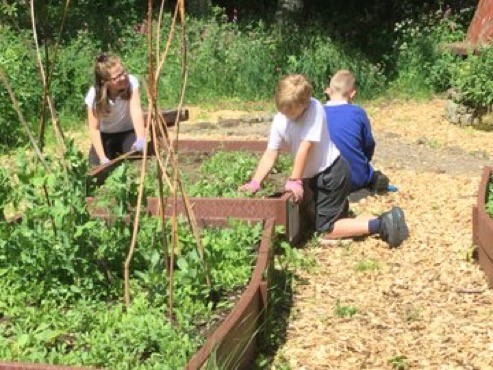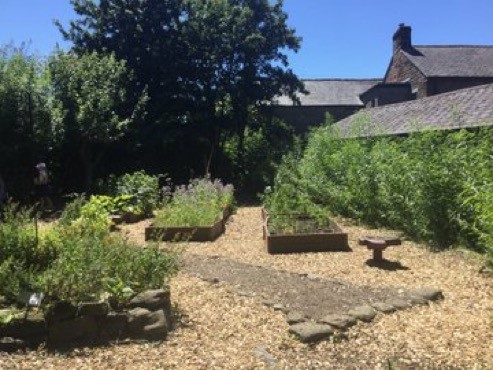How can a school garden contribute to a child’s development? Elizabeth Holmes finds out why the school garden at Castle Carrock is so important.

Whether you’re green fingered or not, the benefits of gardening are well rehearsed. According to research there are ‘substantial human health benefits’ to be derived from time spent in a garden.
The Royal Horticultural Society (RHS) Campaign for School Gardening seeks to give children gardening opportunities not only to boost their skills, but also to contribute to their overall development. It cites numerous direct benefits of gardening for children including:
Rebecca Stacey is headteacher of Castle Carrock School, a village primary on the edge of the north Pennines in Cumbria, and a keen advocate of the benefits of school gardens. ‘Our garden is an integral part of the school,’ Rebecca says. ‘The class teachers plan for its use in curriculum time and are each responsible for a section of it, namely their own raised bed.
‘We have a fire pit and seating, as well as a willow section and a greenhouse, and the garden is used all year round. Our early years children recently held a fire in there and toasted marshmallows, and in science week last year we designed and built bug hotels.’
The garden at Castle Carrock School is cherished by all and that means a steady supply of help in looking after it. ‘It is maintained by the whole community,’ Rebecca says. ‘In the winter we hold a clean-up session where parents and friends will help clear it out and prepare it for the school year. It’s all very informal and we rely completely on people to support!’

School gardening is not all about the adults, however. At Castle Carrock, the pupils pretty much run it. ‘They certainly know more about it than I do,’ Rebecca says. ‘We have a loose ‘gardening club’ who will meet at lunchtimes with an adult support, usually myself, to sort out whatever needs doing.
‘We grow food that we can use in the school kitchen and we also entered the ‘Cumbria in Bloom’ competition last year. We keep an annual scrapbook so we remember what we have been doing, and what we want to do next!’
The RHS Campaign for School Gardening has been designed to inspire and support schools in providing gardening opportunities for children. When you register, which is free of charge, you will receive a welcome pack containing plant labels, stickers, posters and seeds. The downloadable resources will get you started and help you to sustain your garden. You’ll also have access to what other schools are doing to make their gardens sustainable over time.
Learning in the outdoor classroom offers myriad benefits to teachers and pupils alike. It has the potential to enhance a knowledge-rich curriculum and gives children the opportunity to embed a positive attitude towards lifelong scholarship through working with adults in the spirit of mutual responsibility and learning together. If there’s any possibility of developing a school garden, it just might be the best thing your school ever did!
You can contact Rebecca Stacey on Twitter (@bekblayton) to find out more about the garden at Castle Carrock.